Iberian cheese is a culinary jewel with roots deeply rooted in the Iberian Peninsula. Considered one of the world’s most prized gastronomic treasures, this exquisite delicacy has captivated the palates of gourmets and food lovers for centuries. Produced in the regions of Spain and Portugal that are home to the native breed of Iberian pig, this unique cheese reflects the richness of the natural environment and the artisanal tradition that surrounds it. From its artisanal production to the intensity of its flavors and aromas, Iberian cheese is a perfect fusion of historical heritage and passion for gastronomic excellence. In this article, we will explore the secrets and wonders behind this dairy treasure, diving into its production process, its distinctive characteristics and its prominent role in Iberian culinary culture. We will discover how Iberian cheese has conquered the gourmet world and continues to delight the senses of those who have the privilege of tasting it. Welcome to an unforgettable journey through the nuances and essence of the unique Iberian cheese.
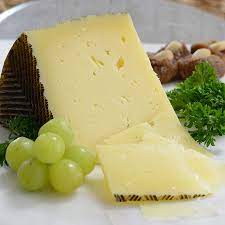
Iberico Cheese: What is it and what are its characteristics
Iberian cheese is a type of cheese originating from the Iberian Peninsula, which covers the regions of Spain and Portugal. It is made mainly from the milk of sheep and goats of native breeds, such as the Merina sheep and the Retinta goat, although it may also contain cow’s milk in some varieties.
What makes Iberian cheese so special is the unique combination of factors involved in its production. First, the geographical and climatic conditions of the region influence the quality and diversity of the flora, which in turn affects the flavor and aroma of the cheese. In addition, the feeding of the animals plays a crucial role, as they graze freely in areas rich in grass and scrub, which results in richer and tastier milk.
The production of Iberian cheese is, in many cases, an artisanal practice that has been passed down from generation to generation, adding a touch of tradition and meticulous care at every stage of the process. Master cheesemakers use ancestral techniques to make the cheese, which may vary according to the region and the producing family, but generally involve milk coagulation, molding, pressing and the subsequent ripening process.
Iberian cheese stands out for its rich and creamy texture, its intense and deep flavor, and its characteristic aromas that reflect the environment in which it was produced. From mild and delicate varieties to more cured and powerful ones, Iberian cheese offers a wide range of gastronomic experiences to satisfy different tastes.
It is important to note that, due to its quality and authenticity, Iberian cheese can be considered a gourmet product, appreciated both in the Iberian Peninsula and internationally.
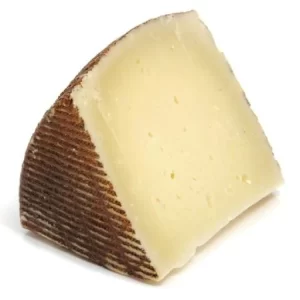
Characteristics
Here are some characteristics of Iberian cheese:
- Origin and Region: It comes from the Iberian Peninsula, specifically from regions in Spain and Portugal, where native breeds of sheep, goats and occasionally cows are raised.
- High Quality Milk: It is made primarily from the milk of sheep and goats of Iberian breeds, fed a diet rich in grasses and herbs, which gives it a distinctive flavor and aroma.
- Artisanal process: Many Iberian cheeses are produced in an artisanal way, following traditional techniques handed down from generation to generation, which highlights the importance of experience and care in its production.
- Variety of flavors: From mild and creamy to intense and spicy, Iberian cheese offers a wide range of flavors to satisfy different preferences.
- Textures and ripening: There are fresh and tender varieties, as well as more cured and aged cheeses, which affects their texture, from soft and unctuous to firm and grainy.
- Characteristic aromas: Reflects the natural environments in which the animals are raised and the ripening processes, offering complex and evocative aromas.
- Color and appearance: The color of Iberian cheese can vary according to its maturity and the type of milk used, from creamy tones to more yellowish or darker shades in more mature cheeses.
- Exclusivity and gourmet: Due to its artisanal production and the quality of the milk used, Iberian cheese is considered a gourmet product and is often associated with exclusivity.
- Denomination of Origin: Some Iberian cheeses have Protected Designation of Origin (PDO) or Protected Geographical Indication (PGI) certifications, which guarantee their authenticity and specific origin.
- Culinary versatility: Iberian cheese is appreciated both in cheese boards and in gourmet dishes, tapas and desserts, being a versatile ingredient in Spanish and Portuguese cuisine.
These characteristics make Iberian cheese a gastronomic treasure with a unique flavor and a cultural and traditional legacy that makes it especially appreciated by lovers of good food.
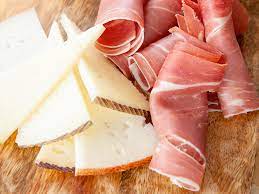
Origin
The origin of Iberian cheese goes back to the Iberian Peninsula, specifically to the regions of Spain and Portugal. Throughout history, the populations of these regions have raised and used sheep, goats and, to a lesser extent, cattle to obtain milk, meat and other dairy products.
Iberian cheese has its roots in antiquity, and its production has been a tradition handed down from generation to generation. Historical records indicate that cheese was made in the peninsula as early as Roman times, and over the centuries, this practice was perfected and adapted to local conditions and available resources.
Iberian cheese has been fundamental in the diet of rural communities for centuries, and its production has remained an artisanal activity rooted in the culture and traditions of the area. The Merina breed of sheep, the Retinta breed of goats and other native breeds have been bred specifically to obtain the high quality milk needed to produce this distinctive cheese.
Over time, the fame of Iberian cheese has transcended the borders of the peninsula, and its prestige and recognition have grown internationally. Today, Iberian cheese is appreciated around the world for its unique flavor and its connection to the rich history and culture of the region.
Substitutes
Iberian cheese is a unique product with distinctive characteristics that make it difficult to substitute completely. However, if you are looking for alternatives to this particular cheese, here are some options that could satisfy your culinary needs:
- Manchego cheese: Hailing from the La Mancha region of Spain, Manchego cheese is another famous cheese from the Iberian Peninsula. It is made from the milk of Manchega sheep and has a distinctive flavor and firm texture.
- Goat cheese: Cheeses made from goat’s milk can be an interesting option for those looking for more intense and distinctive flavors. There is a wide variety of goat cheeses available on the market, from mild and creamy to more aged and flavorful.
- Sheep cheese from other regions: In addition to Manchego cheese, there are other sheep cheeses from different regions of Spain and other countries that can offer unique flavors and aromas.
- Cured cheeses in general: If you are looking for a more general alternative, cured cheeses of different types and regions may be an option. Cheeses such as cheddar, gouda, parmesan, among others, offer a wide variety of flavors and textures.
- Vegetable cheeses: In the market you can also find vegan or vegetable cheeses made from ingredients such as walnuts, almonds, cashews, among others. Although they are not identical to traditional cheese, they can be an option for those who are looking for a dairy-free alternative.
Recipes to elaborate with Iberian Cheese
Here are some delicious recipes that you can elaborate using Iberian cheese:
- Iberian cheese board: Create an exquisite cheese board with different varieties of Iberian cheese. Accompany them with nuts, jams, grapes and assorted breads to enjoy a complete gastronomic experience.
- Grilled Iberian cheese: Cut the Iberian cheese into thick slices and grill them on a hot griddle until lightly browned. Serve with honey, nuts and a pinch of black pepper to enhance the flavors.
- Montadito of Iberian cheese and ham: Place a slice of Iberian ham on a slice of bread, and add a thin layer of Iberian cheese on top. Brown lightly in the oven or grill until the cheese melts. You can add a touch of olive oil and some fresh arugula to complete this delicious sandwich.
- Iberico cheese risotto: Add small pieces of Iberico cheese to your traditional risotto while it is cooking. The cheese will melt into the rice, creating a creamy texture and unique flavor.
- Iberico cheese and pear salad: Combine fresh pear slices with slices of Iberico cheese in a green salad. Add walnuts, honey dressing and balsamic vinegar for a delicious sweet and sour touch.
- Iberian cheese croquettes: Prepare a mixture of bechamel sauce with small pieces of Iberian cheese. Form small balls, dip them in beaten egg and breadcrumbs, and fry them until golden brown and crispy.
- Cracked eggs with Iberian cheese: Fry eggs at low temperature until the whites are cooked but the yolks are still runny. Place them on a base of crispy fried potatoes and add generous slices of Iberian cheese on top. The yolks will mix with the cheese, creating a creamy and delicious sauce.
Remember that Iberian cheese has an intense flavor, so it can be the protagonist in these recipes or combine it with other ingredients to balance the flavors. Enjoy these recipes and let yourself be carried away by the wonderful experience of Iberian cheese in your kitchen!


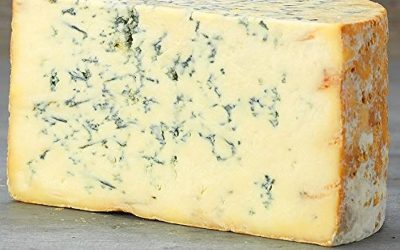
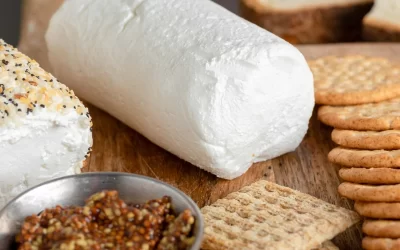
0 Comments